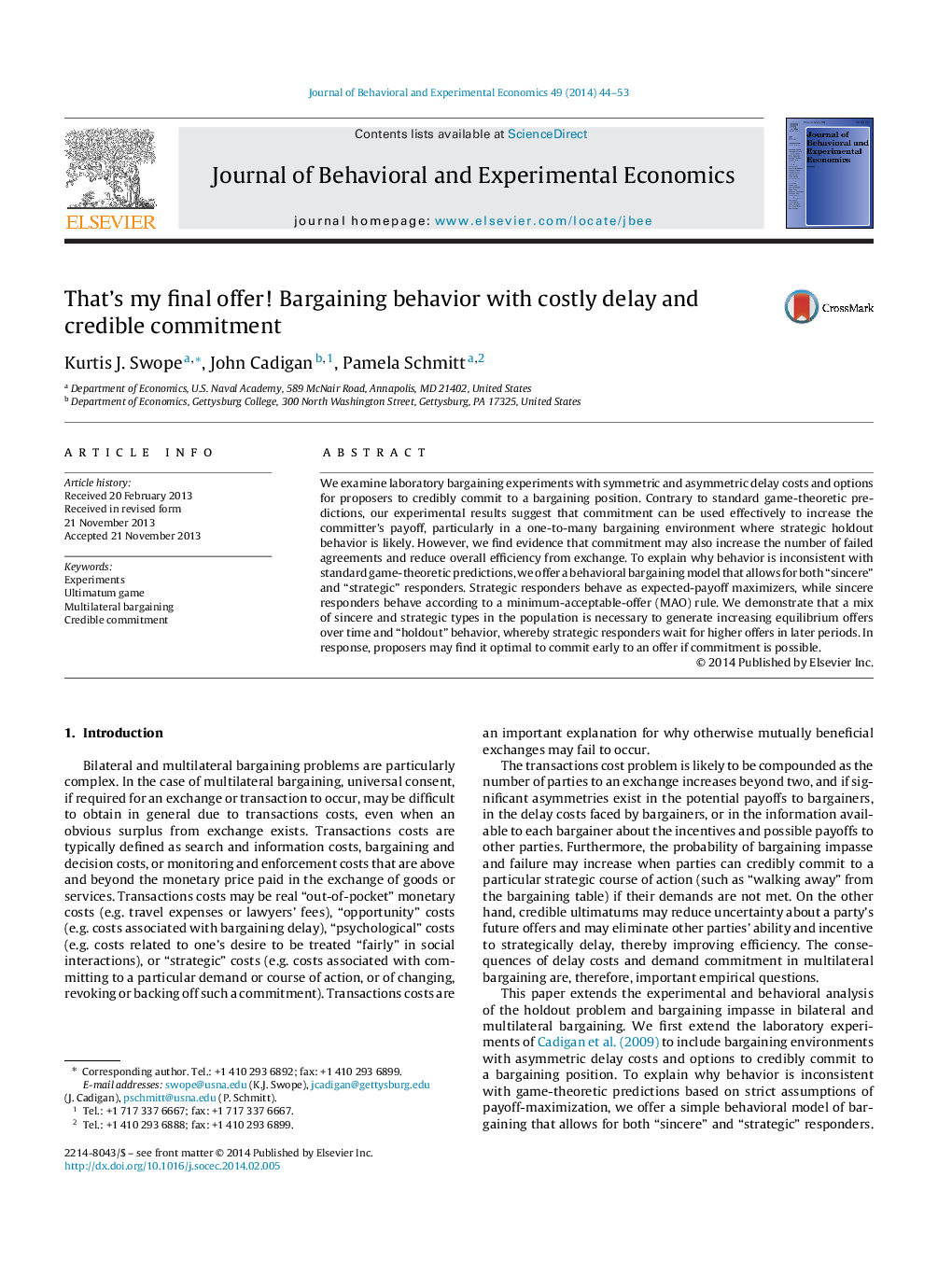| Article ID | Journal | Published Year | Pages | File Type |
|---|---|---|---|---|
| 881962 | Journal of Behavioral and Experimental Economics | 2014 | 10 Pages |
•Our multi-period bargaining model allows for sincere or strategic responders.•Laboratory subjects face variable delay costs and commitment opportunities.•Asymmetric delay disadvantages the player with the higher cost.•Commitment increases the payoff to the committer and decreases efficiency.
We examine laboratory bargaining experiments with symmetric and asymmetric delay costs and options for proposers to credibly commit to a bargaining position. Contrary to standard game-theoretic predictions, our experimental results suggest that commitment can be used effectively to increase the committer's payoff, particularly in a one-to-many bargaining environment where strategic holdout behavior is likely. However, we find evidence that commitment may also increase the number of failed agreements and reduce overall efficiency from exchange. To explain why behavior is inconsistent with standard game-theoretic predictions, we offer a behavioral bargaining model that allows for both “sincere” and “strategic” responders. Strategic responders behave as expected-payoff maximizers, while sincere responders behave according to a minimum-acceptable-offer (MAO) rule. We demonstrate that a mix of sincere and strategic types in the population is necessary to generate increasing equilibrium offers over time and “holdout” behavior, whereby strategic responders wait for higher offers in later periods. In response, proposers may find it optimal to commit early to an offer if commitment is possible.
